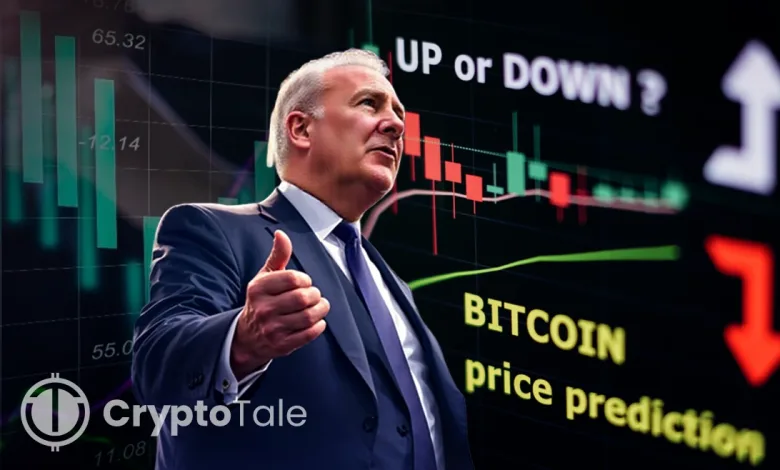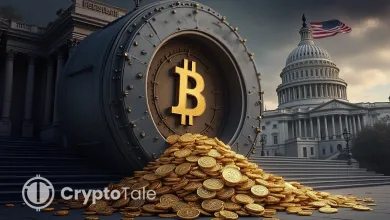Schiff Warns of Bond Market Crisis, Bitcoin Holds Steady

- U.S. Treasury yields surged 17 basis points, triggering widespread market volatility.
- Bitcoin shows resilience, outperforming equities and Treasuries amid market turmoil.
- Tariff uncertainties contribute to rising inflation concerns, affecting bond market stability.
Peter Schiff, an outspoken critic of conventional financial systems, has raised alarms over the U.S. bond market, suggesting that the current turmoil could trigger a financial crisis even worse than the 2008 collapse. Schiff’s warning comes when U.S. Treasury bonds, typically seen as a haven, have faced significant volatility, with yields rising sharply.
The catalyst for this instability appears to be the ongoing trade uncertainty, particularly U.S. tariffs on large trade partners, which Schiff argues may destabilize the global economy. The 10-year U.S. Treasury yields spiked 17 basis points during the intense market selloff of April 9. The Treasury market has exhibited substantial movement since equities faced constant pressure because trading swings have reached 35 basis points in 10-year yields—a figure that matches two-decade highs.
Analysts attribute the price shifts to margin calls because hedge fund investors use asset disposals to generate liquidity. Like in March 2020, COVID-19-induced market disruption events and financial instability spread throughout the market.
Market Volatility and the Dash for Cash
The current bond market selloff has reignited concerns over the fragility of U.S. government debt, often viewed as the world’s safest asset. U.S. Treasury bonds recorded their worst market performance since the pandemic this week, suffering drops for three consecutive days. Rising bond yield levels make investors doubt whether Treasuries maintain their position as dependable, risk-free investments.
Several factors are contributing to this volatility. Tariffs imposed by the U.S. government under President Donald Trump have spurred inflation fears, which could limit the Federal Reserve’s ability to cut interest rates despite slowing economic growth. Some analysts suggest that the tariffs could disrupt global supply chains and increase costs, further pressuring markets already on edge.
Others believe that the current bond market instability is linked to the unwinding of hedge fund trades, specifically the basis trade. This strategy profits from the difference between cash Treasuries and futures. The collapse of these trades has added to the selling pressure in the market.
Related: Why Peter Schiff is Shifting Toward BTC Despite His Criticism
Bitcoin’s Resilience in a Tumultuous Market
Bitcoin maintained its stability throughout market volatility by demonstrating superior returns to stocks and Treasuries. While Bitcoin dropped by 8% the previous week, it performed better than Nasdaq, which fell by 10%. Some investors speculate that Bitcoin is emerging as a replacement for conventional investment assets during market instability.
Peter Schiff previously rejected Bitcoin in favor of gold, which he considered the best option for supporting economic stability. The current market unpredictability might make Schiff and other experts reevaluate their position on cryptocurrency integration in contemporary investment portfolios. Financial market instability has driven attention toward Bitcoin because its stability offers investors who want diversified positions a different choice from U.S. government bonds.




